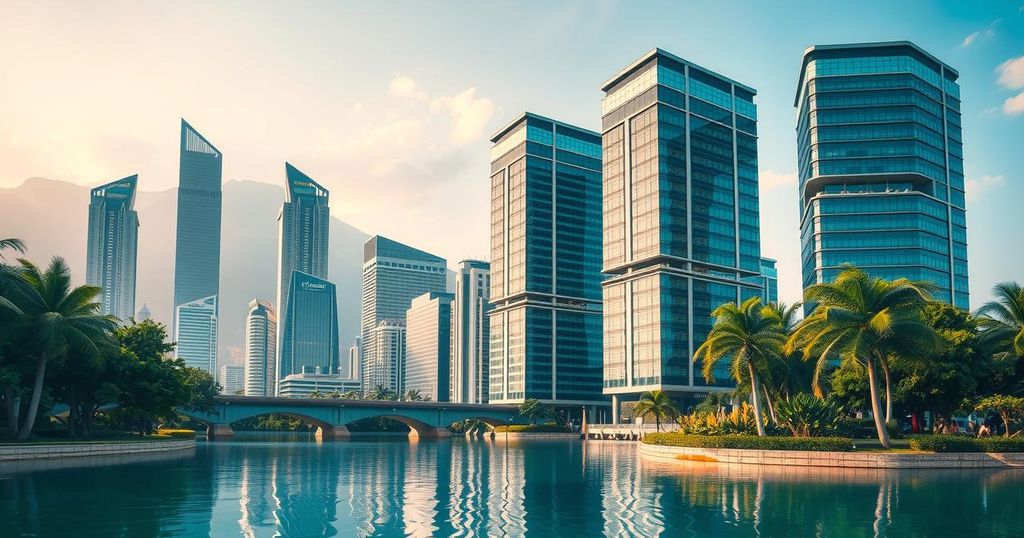The IERPP has clarified that as of 2024, Ghana is not in an economic crisis but is in a recovery phase, with GDP growth at 3.2% and declining inflation. Former Finance Minister Dr. Amin Adam supports this view, criticizing President Mahama for his negative portrayal of the economy. While challenges remain, macroeconomic indicators suggest significant improvement and cautious optimism for Ghana’s future stability.
By 2024, the Institute of Economic Research and Public Policy (IERPP) countered President John Dramani Mahama’s assertion of an economic crisis in Ghana, emphasizing that the nation is recovering rather than in turmoil. The IERPP reported signs of stabilization, citing a GDP growth rate of 3.2%, driven by a rebound in cocoa production and favorable global cocoa pricing.
Inflation decreased to 22.8% in the second quarter, while the cedi maintained a steady exchange rate of GH₵12–13/USD. The public debt also showed signs of stabilization, estimated between 75% and 80% of GDP, with the government’s fiscal deficit narrowing to between 5.0% and 5.5% of GDP. IERPP credited aggressive fiscal and monetary reforms for averting an economic crisis and maintaining investor confidence.
Additionally, successful debt restructuring reduced public debt significantly, while inflation control measures led to a decline in both headline and food inflation rates. With a more stable cedi and improved foreign reserves, Ghana’s economy demonstrated recovery potential despite ongoing challenges like youth unemployment and structural debt concerns.
Former Finance Minister Dr. Mohammed Amin Adam supported these claims, highlighting that Ghana exited a crisis and experienced strong economic growth under the previous administration. He criticized President Mahama for his negative portrayal, particularly noting that the previous government left behind substantial gross international reserves to bolster the cedi.
During the State of the Nation Address, President Mahama expressed grave concerns regarding the economic situation, claiming the nation is experiencing a crisis marked by hardship and inflation. He stressed the urgent need for strategic reforms to rejuvenate the economy and provide relief to its citizens. Overall, 2024 signifies a pivotal turn for Ghana’s economy, with crucial measures required to sustain this recovery.
In conclusion, the IERPP and former Finance Minister Dr. Mohammed Amin Adam present a contrasting view to President Mahama, asserting that Ghana’s economy has stabilized and is on a recovery path after severe challenges in 2022-2023. While the president calls for urgent reforms due to economic hardships, analyses suggest positive indicators of growth and resilience in key economic metrics. Sustained efforts in diversification and fiscal discipline will be necessary to maintain this recovery trajectory.
Original Source: 3news.com




